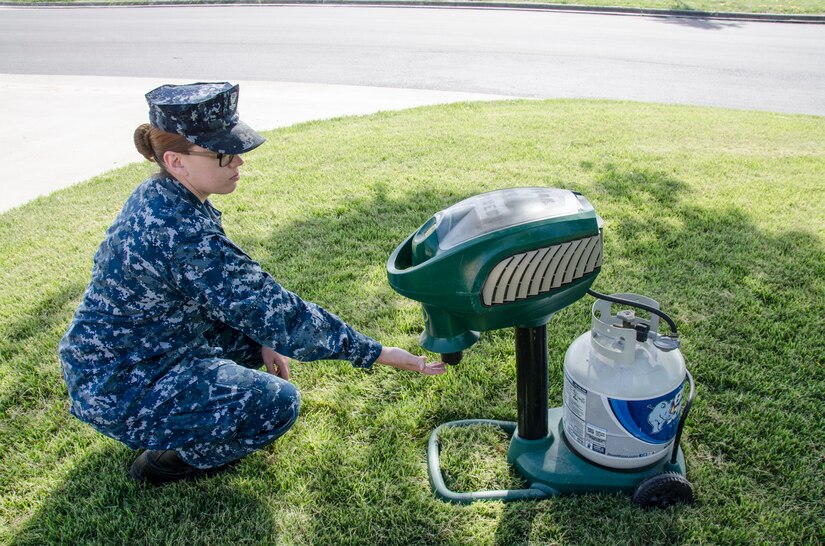By Rod Hafemeister, Naval Health Clinic Corpus Christi
KINGSVILLE, Texas -- It happens every year. South Texas is
dry for weeks, then it rains.
And, then come the mosquitoes.
“They can lay their eggs in even the smallest amount of
water,” said Navy Petty Officer 2nd Class Jessica Wright, a hospital corpsman
and preventive medicine technician at Naval Branch Health Clinic Kingsville.
“If it dries out, the eggs wait until it’s wet again and then hatch.”
She added, “Mosquitoes live to feed, breed and lay eggs. And
carry disease.”
According to Texas A&M AgriLife Extension Service, 85
species of mosquito have been identified in Texas. If there is a disease that
can be transmitted by mosquito, there’s a species that can do it somewhere in
Texas.
Disease Carriers
Texas mosquitoes have been found carrying West Nile,
chikungunya, dengue, Zika and malaria. Corpus Christi finds mosquitoes carrying
West Nile almost every year.
Wright, originally from Fayetteville, Arkansas, works to
minimize the disease risk. She tracks mosquito populations at Naval Air Station
Kingsville and recommends control measures, like fogging.
“So far, including records before I got here two years ago,
we haven’t had any trapped mosquitoes test positive for disease,” Wright said.
“We’re still tracking on Zika and West Nile -- that’s a big one. Nothing yet,
and I hope it stays that way.”
She added, “But we have a mobile population that goes all
over the world. Or people can get bit on vacation, come back here, get bit and
spread that disease.”
Wright has been in the Navy for seven years and a preventive
medicine tech for two. The job includes inspections of food service, childcare
and recreational facilities, water systems, bacteriological analysis,
epidemiological investigations, mass immunization programs and field sanitation
as well as disease vector control.
“It encompasses everything. And I get to go outside,” she
said.
But she has a special passion about mosquitoes.
“I hate them. I can’t think of any reason for them to exist
except to spread disease,” she said.
‘Mosquito Magnet’
Wright’s primary tool for combating mosquitoes is a
‘mosquito magnet,’ a trap that uses propane to emit a carbon dioxide scent that
attracts mosquitoes into a mesh bag.
“I set it up overnight and in the morning extract the mosquitoes,
live and dead, package them and ship them overnight to the state lab in
Austin,” she said.
The lab sends back results showing the numbers of mosquitoes
by species and if any were carrying a disease.
So far this year, there have been few mosquitoes, even with
the heavy rains.
Part of that has been due to the ongoing effort in recent
years to reduce the number of places mosquitoes can lay eggs, such as ensuring
there are no abandoned tires or other standing water traps.
Two intermittent ponds were filled in several years ago,
also reducing places mosquitoes could breed.
“We go out and pump the water when it could attract
mosquitoes,” said Arturo Alvidrez, a performance assessment representative with
NASK Public Works.
“We also use insecticide and fogging. I think we have a very
effective control program on the base,” Alvidrez added.
And, recent frequent high winds scatter the insects.
“If the winds are high, say above 20 mph, you’re not going
to catch anything in the traps,” Wright said.
But Wright’s policy is not to take chances.
“My attitude is, let’s fog and kill them and not have this
risk,” she said. “I’d rather make sure everyone is protected.”

No comments:
Post a Comment